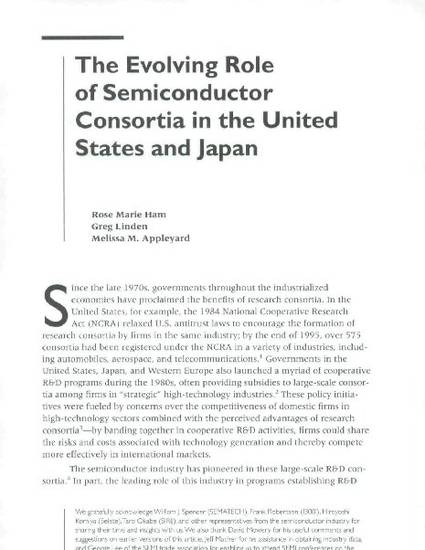
Article
The Evolving Role of Semiconductor Consortia in the United States and Japan
California Management Review
Document Type
Article
Publication Date
10-1-1998
Subjects
- Industrial management -- Research,
- Semiconductor industry,
- Electronic industries,
- High technology services industries
Abstract
This article examines the interactions between public and private actors as cooperation in the semiconductor industry becomes increasingly international. The latest manifestations of multilateral collaboration are two consortia: I300I based in the United States and Selete based in Japan. Through an analysis of their structures and their origins, this article provides a deeper understanding of the complexities facing industry-wide consortia, the role of the government in promoting or inhibiting cooperation, and the lingering rivalries that impede truly global cooperation in a dynamic, high-technology industry.
Persistent Identifier
http://archives.pdx.edu/ds/psu/11262
Citation Information
Ham, R., Linden, G., & Appleyard, M. M. (1998). The Evolving Role of Semiconductor Consortia in the United States and Japan. California Management Review, 41(1), 137-163.

This is the publisher's final PDF. Ham, R., Linden, G., & Appleyard, M. M. (1998). The Evolving Role of Semiconductor Consortia in the United States and Japan. California Management Review, 41(1), 137-163. (c) 1998 by the Regents of the University of California. Published by the University of California Press.